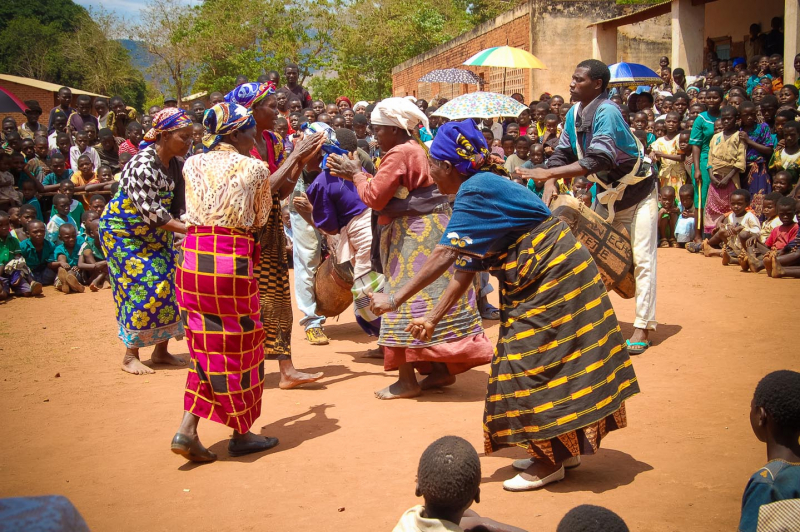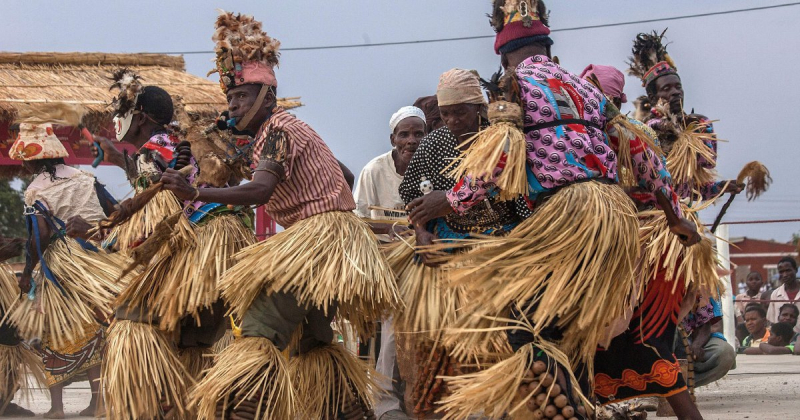Traditional Dances
With over 80 traditional dances, Malawi is a country with diverse cultural beliefs and practices. These dances are performed on various occasions and for different reasons and are based on the beliefs of a particular tribe. For all the many tribes in Malawi, traditional dances are performed for a particular function or ceremony – for example during funerals, initiation ceremonies, or harvest time. These are periods of unity when families or villages come together, feast, and resolve their differences. Some traditional dances are performed by everyone, while others are for particular people, based on their meaning and significance to the community.
Among the Chewa tribe, Gule Wamkulu (translated as the “Great Dance”) inherited from the tribe's past is performed in a circumstance. Or Uyeni is a Ngoni dance that is performed by girls during the installation of a chief. Young girls perform the dance barefoot with their breasts exposed. The dancers accompany the king to the Bwalo or the coronation ground. As per traditional beliefs, this cements the notion that women are custodians of culture. Furthermore, The Chilimika dance by the Tonga tribe is from the Northern region of Malawi, Nkhata Bay in particular. It is performed by young boys and girls at the beginning of each year - no wonder then that the name is translated into English as "year", and so on.








